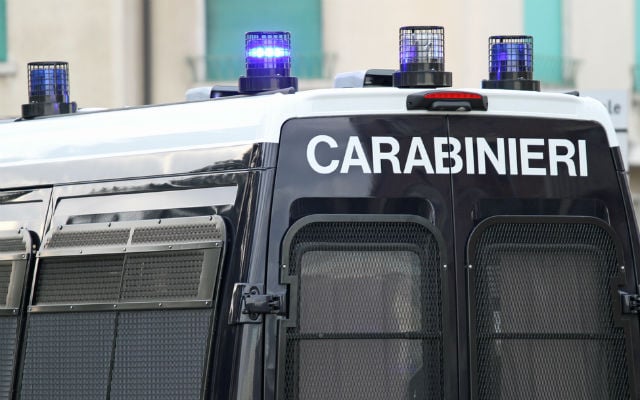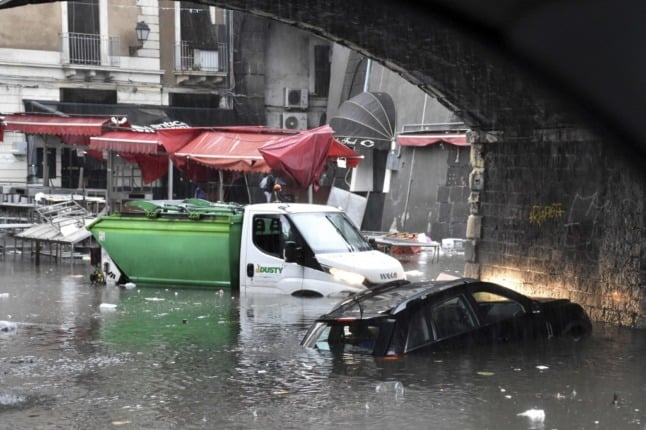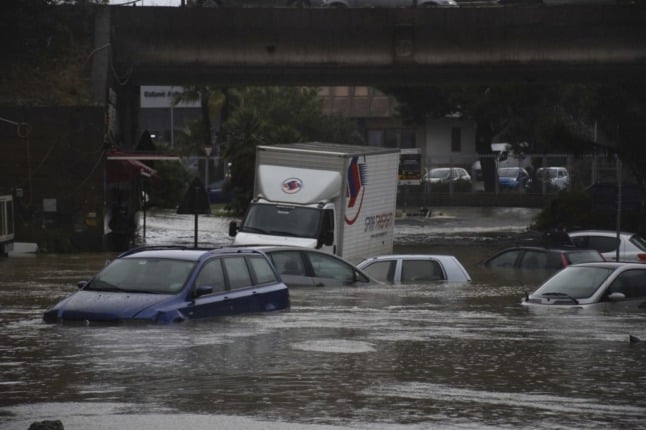Maria Angela Di Trapani, the wife of jailed mafia boss Salvino Madonia, is suspected of being the mastermind behind a reshuffle of the Sicilian mafia following the death last month of “boss of bosses” Toto Riina.
Di Trapani, the daughter of a fugitive, has already spent seven years in prison for having passed the orders of Madonia from behind bars to the clan on the outside.
Madiona is serving life for the 1991 murder of renowned anti-Mafia businessman Libero Grassi, who was gunned down for attempting to persuade Sicilians to stand up to the mob.
Di Trapani, who was freed in 2015, is suspected of having since scaled the rungs of the crime group — nicknamed “the octopus” for its tentacled reach into all areas of society — from messenger to boss, according to wiretaps obtained by the police.
“Once released, she immediately returned to Cosa Nostra and took up a decisive role,” prosecutor Salvo De Luca told a press conference.
Riina, who was nicknamed “The Beast” because of his cruelty, died last month and his presumed heir Matteo Messina Denaro is on the run, while other potential successors are serving time under Italy's harsh mafia regime.
Police said jailed bosses had appointed Di Trapani to head up the Madonia clan and tasked her with liaising with other clans on the relaunch of Cosa Nostra following Riina's death.
She was arrested on Tuesday morning along with 24 other people in a sting involving over 200 policemen, helicopters and sniffer dogs. Those nabbed are accused of mafia association, extortion and shifting stolen goods.
The arrests “reveal how Cosa Nostra, though weakened by investigations and trials, still has an enduring capability to use intimidation to force businesses to pay (the mafia tax) pizzo”, police said in a statement.
The “Addiopizzo” (“Goodbye Pizzo”) association, which campaigns to end the payment of protection money, on Tuesday urged Sicilian entrepreneurs and shopkeepers to stand up for their rights and denounce extortionists.
Di Trapani hit the headlines in 2000, when she conceived a child with her husband despite the draconian detention conditions he was being held under.
In 2007, despite backing from a court, the prison refused to allow the couple to have a second child by artificial insemination.
It’s not unusual for women to lead mafia groups, often taking over the reins from their husbands who are either jailed or murdered.
In February last year, police swooped on the powerful Laudani crime group, which was run by three women – Maria Scuderi, 51, Concetta Scalisi, 60 and Paola Torrisi, 52 – in Caltagirone, a town near Catania.
Until their arrest, the women, known as the “three queens of Caltagirone”, had ruled the clan with an iron grip as well as governing all “financial matters”, but were brought down by the heir to the clan, Giuseppe Laudani, who began helping police.




 Please whitelist us to continue reading.
Please whitelist us to continue reading.